As Nigerians grapple with the aftermath of the fuel subsidy removal, President Bola Tinubu has taken steps to address the concerns and alleviate the hardships faced by the people.
He has directed the National Economic Council (NEC), led by Vice President Kashim Shettima, to provide inputs on palliatives and review the minimum wage.
The aim is to cushion the pain caused by the subsidy removal and ensure that the most vulnerable Nigerians are supported.
During a meeting with members of the Nigeria Governors' Forum, chaired by Governor AbdulRahman AbdulRazaq of Kwara State, President Tinubu emphasized the need for collaboration between state governors and the Federal Government to combat poverty nationwide.
He expressed his dissatisfaction with the level of impoverishment in the country, deeming it "unacceptable."
In light of this, he urged political leaders to put aside their differences and work together to alleviate the suffering and hardships faced by the people.
The NEC, comprising 36 state governors, the Governor of the Central Bank of Nigeria, and other government officials, has been tasked with mobilizing various interventions to address the challenges faced by the most vulnerable segments of society.
The President's directive demonstrates a commitment to finding practical solutions to the difficulties experienced by Nigerians.
Meanwhile, the Trade Union Congress has expressed its expectations for the Federal Government to provide feedback on its demand for a minimum wage of N200,000 by June 19.
This highlights the ongoing negotiations and discussions surrounding wage reviews, which are aimed at ensuring fair compensation for workers in light of the subsidy removal.
Overall, President Tinubu's directive to the NEC and his call for unity among political leaders reflect a recognition of the pressing need to alleviate the hardships faced by Nigerians.
By prioritizing the welfare of the people and seeking collaborative solutions, the government aims to mitigate the effects of subsidy removal and work towards a more equitable society.
TINUBU LAMENT
The visible effects of poverty on the faces of our fellow citizens remind us that poverty is not an inherited condition; rather, it is a product of our society. Our mission is to eradicate poverty and build a prosperous nation.
We must put aside partisan politics and come together to discuss the future of Nigeria and focus on nation-building.
President Tinubu addressed the governors during the meeting, emphasizing the urgent need to address the unacceptable level of poverty in the country. He stressed the importance of investing in education as a powerful tool to combat poverty.
Regardless of our political affiliations, our primary duty is to work for the betterment of our people.
The discussions during the meeting centered around finding solutions to alleviate the hardships faced by Nigerians. Key topics included providing palliatives to cushion the impact of the subsidy removal and considering an upward review of the minimum wage, which currently stands at N30,000 per month.
President Tinubu assured the governors of his willingness to collaborate and maintain an open-door policy.
Governor Dapo Abiodun of Ogun State, who briefed the press after the meeting, highlighted the importance of enhancing the minimum wage.
He revealed that President Tinubu had instructed the National Economic Council (NEC) to convene, led by Vice President Kashim Shettima, along with the economic team and stakeholders from the energy sector.
The NEC will work towards formulating a comprehensive approach that will benefit the common man and Nigerians at large.
Governor Abiodun also acknowledged that while these interventions would provide temporary relief, the ultimate solution lies in transitioning from fossil fuels to renewable energy sources.
He emphasized the necessity of an energy transition for the entire country, recognizing that the current prices of diesel and petrol make it unsustainable to power vehicles solely with these fuels.
He cited examples from other countries such as Egypt, where the government has successfully converted mass transit vehicles to run on Compressed Natural Gas.
The government is now looking towards similar alternatives and exploring viable options for sustainable energy sources. This long-term approach will address the root causes of the challenges faced by Nigerians, providing a more permanent solution to the energy needs of the country.
In conclusion, President Tinubu's call to address poverty and his commitment to collaboration demonstrate a shared vision to uplift the nation.
The discussions surrounding palliatives, minimum wage reviews, and the transition to renewable energy reflect a comprehensive approach to tackle the immediate challenges while working towards sustainable solutions for the betterment of all Nigerians.
In several countries, there has been a successful shift towards running vehicles on either Compressed Natural Gas (CNG) or electricity. This transition allows for sustainable transportation of people, goods, and services at reasonable prices. Governor Dapo Abiodun highlighted these examples during the Governors' Forum meeting, where discussions centered on sustainable solutions.
The meeting, chaired by President Tinubu, saw the attendance of all the members, except for the governors of Kaduna, Katsina, Akwa Ibom, Cross River, Ekiti, Sokoto, Ondo, Borno, Yobe, Gombe, and Katsina states. However, the governors of Edo and Niger states were represented by their deputies, ensuring broad participation in the discussions.
Governor Abiodun shed light on the ongoing deliberations with President Tinubu, which aim to explore viable and sustainable alternatives. The focus is on adopting environmentally friendly technologies like CNG and electricity to power vehicles.
By implementing these solutions, Nigeria can achieve affordable transportation while reducing its carbon footprint.
The governor emphasized the importance of sustainability in the administration's approach. The discussions revolved around long-term solutions that would allow for the transportation of people, goods, and services at reasonable prices.
This signifies a forward-thinking perspective, considering the economic, environmental, and social factors at play.
The transition to CNG or electric vehicles is an integral part of the envisioned sustainable future. These solutions offer significant benefits, such as reduced dependence on fossil fuels, lower emissions, and improved air quality.
By embracing these alternatives, Nigeria can effectively address the challenges of transportation while aligning with global efforts to combat climate change.
In conclusion, the Governors' Forum meeting focused on sustainable transportation solutions, drawing inspiration from countries that have successfully implemented CNG and electric vehicles.
The discussions centered on long-term approaches to ensure reasonable prices, environmental conservation, and the efficient movement of people and goods. With this commitment to sustainability, Nigeria can pave the way for a greener and more prosperous future.
TUC GIVES DEADLINE
The Trade Union Congress (TUC) has set a deadline for the Federal Government to propose a new minimum wage, expecting a response by June 19. Nuhu Toro, the Secretary General of the TUC, emphasized that the proposed minimum wage of N200,000 was one of the demands presented to the government in relation to the fuel subsidy removal.
The TUC firmly believes that the government should present a substantial proposal by the given deadline.
In another development, the Depot and Petroleum Products Marketers Association of Nigeria recently held a meeting with the President at the State House. During the meeting, the association made a commitment to provide 100 units of CNG/diesel-powered, 50-seater buses.
The aim is to facilitate mobility for the most vulnerable citizens in the country. Mrs. Winifred Akpani, the Managing Director of North-West Petroleum & Gas Company Limited, spoke on behalf of the group and revealed that each of these newly manufactured buses costs N100 million.
Mrs. Akpani expressed their support for the government's initiatives and emphasized the importance of collaboration. She highlighted the challenges and difficulties faced by the people and stressed the need for collective action to address them.
Recognizing the existing pains and hardships, she called for concerted efforts from all stakeholders to find solutions and alleviate the burdens faced by the Nigerian population.
Overall, the TUC's deadline for the minimum wage proposal and the commitment of the Depot and Petroleum Products Marketers Association to provide CNG/diesel-powered buses demonstrate the ongoing efforts to address the concerns arising from the fuel subsidy removal.
These initiatives reflect a collective commitment to finding practical solutions and collaborating with the government to improve the welfare and mobility of the most vulnerable members of society.
During a meeting at the State House, the Depot and Petroleum Products Marketers Association of Nigeria pledged to provide 50 to 100 mass transit buses that run on compressed natural gas (CNG) and diesel interchangeably.
These buses will be locally produced, creating job opportunities and reducing the pressure on foreign exchange. Mrs. Winifred Akpani, speaking on behalf of the group, expressed the satisfaction of President Tinubu with this initiative.
This gesture aims to counter the perception that marketers are opposed to deregulation, highlighting their commitment to finding sustainable solutions.
In Ogun State, the government has taken steps to review the minimum wage for its workers in response to the fuel subsidy removal. A high-ranking official, speaking anonymously, confirmed that the state government has initiated the process of developing a new minimum wage package to mitigate the impacts of the subsidy removal.
While the exact figures are yet to be disclosed, the government is actively working on a solution.
Similarly, the Kwara State Government has prioritized the welfare of its workers. Governor Mallam AbdulRaman AbdulRazaq expressed his administration's commitment to the well-being of employees during a meeting with labor unions in the state.
The government intends to collaborate with union leaders to establish an agreeable formula for palliatives to support the workers.
This demonstrates the government's dedication to ensuring the welfare of its workforce and addressing their concerns amidst the fuel subsidy removal.
Overall, these developments showcase a multi-faceted approach to address the challenges posed by the subsidy removal. The efforts of the Depot and Petroleum Products Marketers Association to provide mass transit buses that run on CNG and diesel emphasize their support for sustainable transportation and job creation.
At the state level, both Ogun and Kwara states are actively working on reviewing the minimum wage and implementing measures to mitigate the impacts of the subsidy removal.
These initiatives demonstrate a collective commitment to finding practical solutions that prioritize the welfare of workers and the sustainability of the transportation sector.
TINUBU SIGN STUDENT LOAN BILL
The Student Loan Bill, now officially known as AN ACT TO PROVIDE EASY ACCESS TO HIGHER EDUCATION FOR NIGERIANS THROUGH INTEREST-FREE LOANS FROM THE NIGERIAN EDUCATION BANK ESTABLISHED, was sponsored by Hon. Femi Gbajabiamila. This law aims to facilitate access to higher education for Nigerian students by offering interest-free loans.
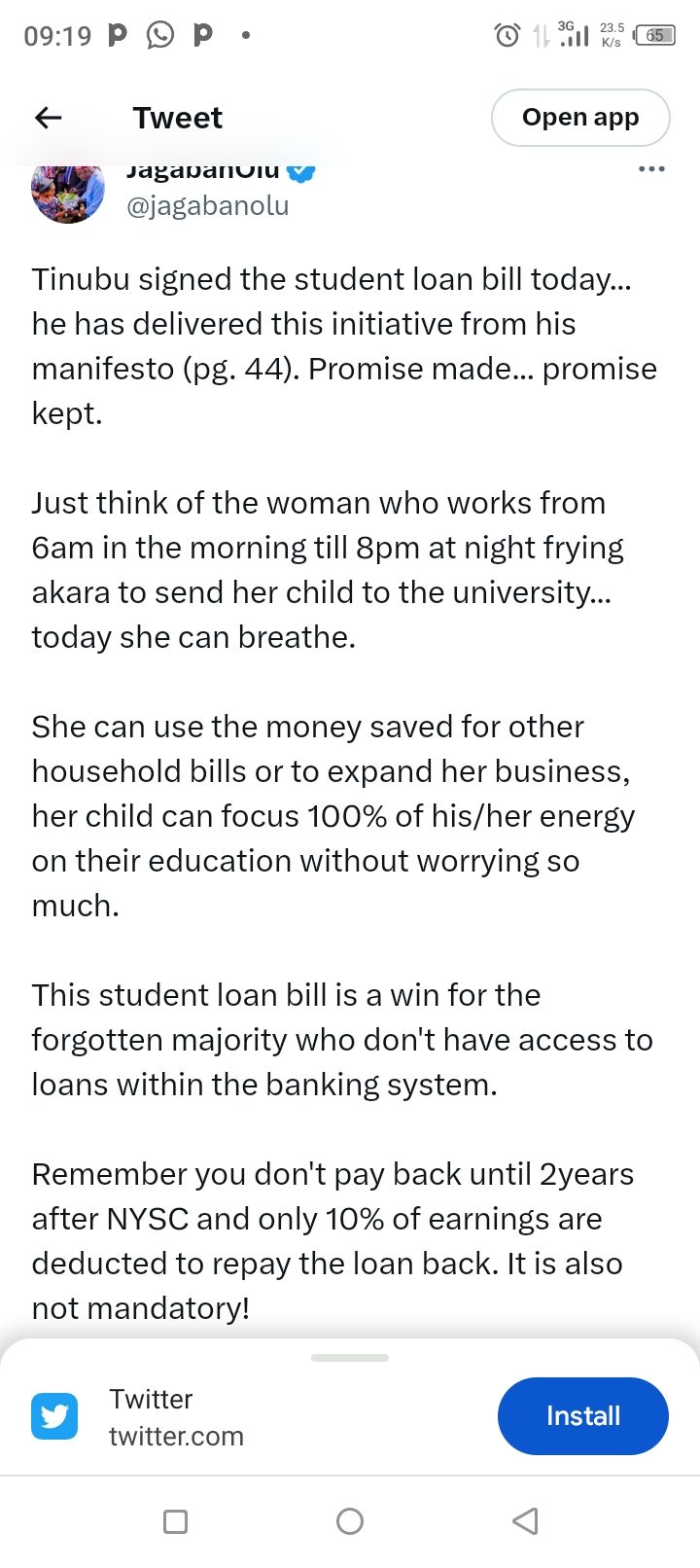
To apply for a loan under this Act, students must follow the designated process. They are required to submit their applications to the Chairman of the Bank through their respective educational institutions. However, before applying, students must meet certain conditions to be eligible for the loan.
Firstly, students must have secured admission into a public Nigerian university, polytechnic, College of Education (COE), or Technical and Vocational Education and Training (TVET) school. This ensures that the loan is directed towards students pursuing higher education in recognized institutions.
In addition, the applicant's income or family income should be less than N500,000 per annum, indicating that the loan targets students from low-income backgrounds who may face financial challenges in funding their education.
To support the loan application, the student must provide at least two civil servants as guarantors. These guarantors should hold a minimum rank of level 12 and have served in their positions for a specific number of years.
Alternatively, the student can provide a lawyer with a minimum of 10 years post-call experience, a judicial officer, or a Justice of Peace as guarantors. This requirement ensures that there is a reliable support system in place to guarantee the repayment of the loan.
It's important to note that certain individuals are not eligible for the loan. Students who have previously defaulted on loans, been found guilty of exam malpractices, committed felonies, or engaged in drug offenses will not be considered for the loan.
Additionally, students whose parents have defaulted on previous loans are also not eligible.
These criteria aim to ensure that the loans are allocated to deserving and responsible individuals who will benefit from the financial assistance and fulfill their obligations.
Overall, the Student Loan Act provides a framework for Nigerian students to access interest-free loans for higher education.
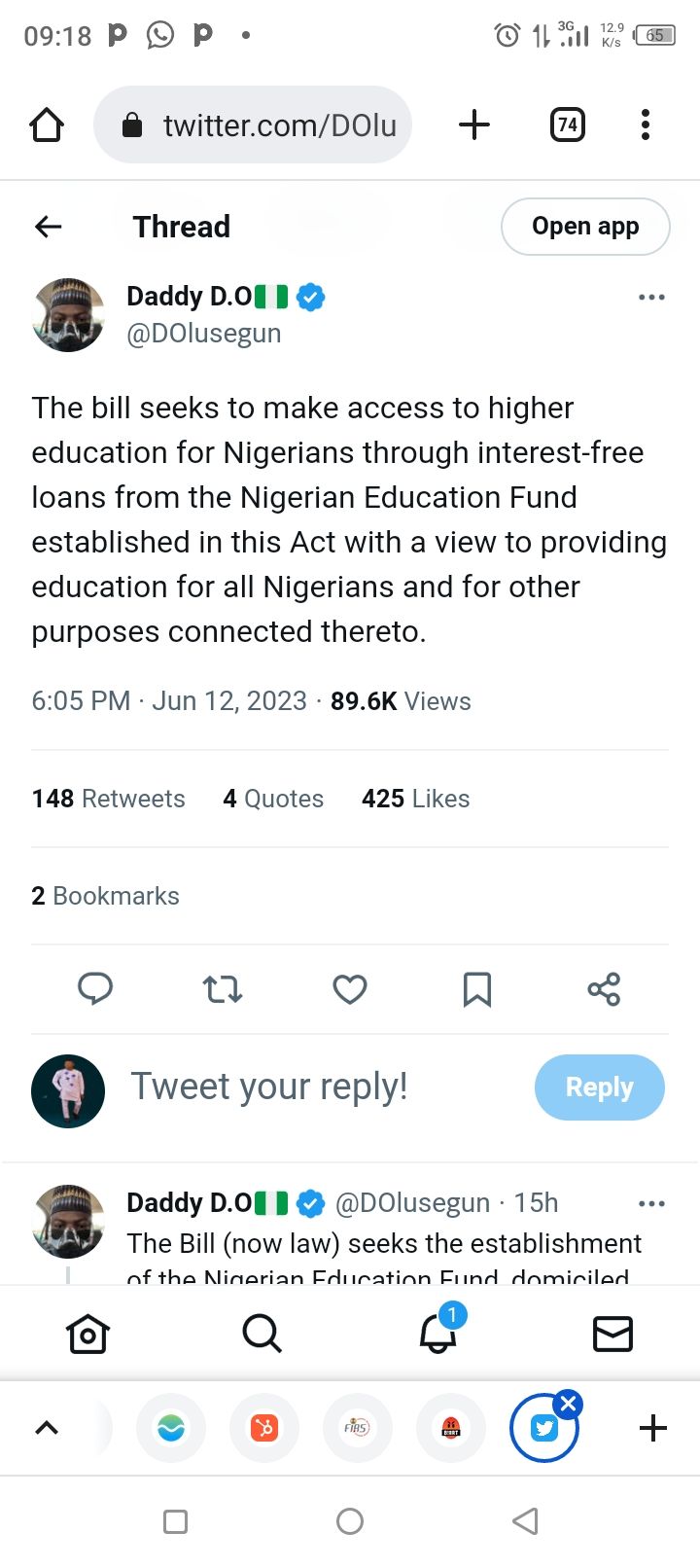
By meeting the specified conditions and going through the application process, eligible students can obtain the financial support they need to pursue their academic aspirations and contribute to the nation's development.
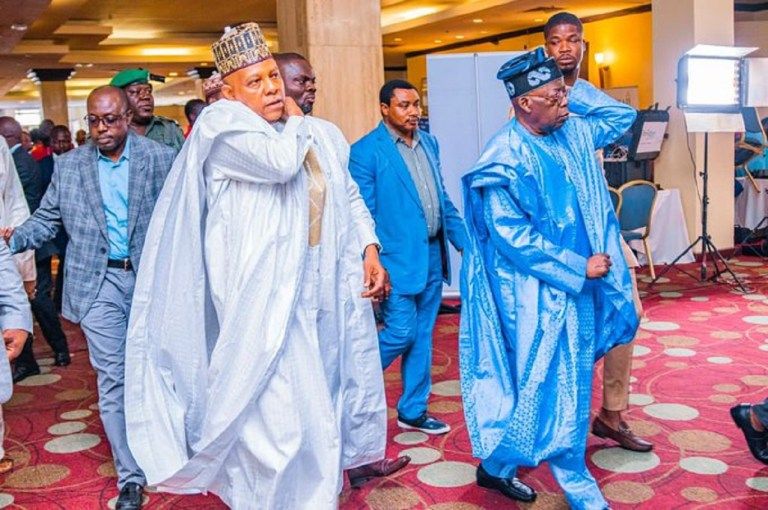
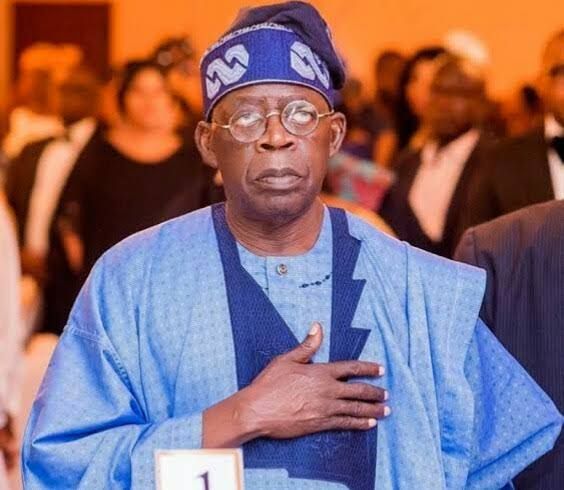
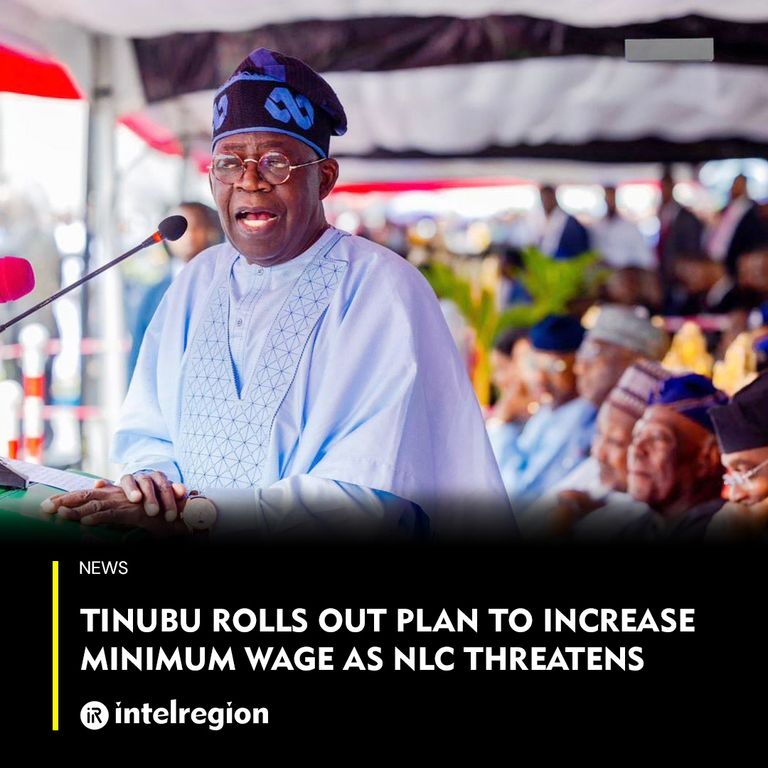
Congratulations, your post has been curated by @r2cornell, a curating account for @R2cornell's Discord Community.
It's a very welcoming idea ,the fuel subsidy removal have caused untold hardships to Nigerians,they need to be little bit relieved
Only those who do not understand what fuel subsidy is are the one complaining. The removal is for the betterment of Nigerians